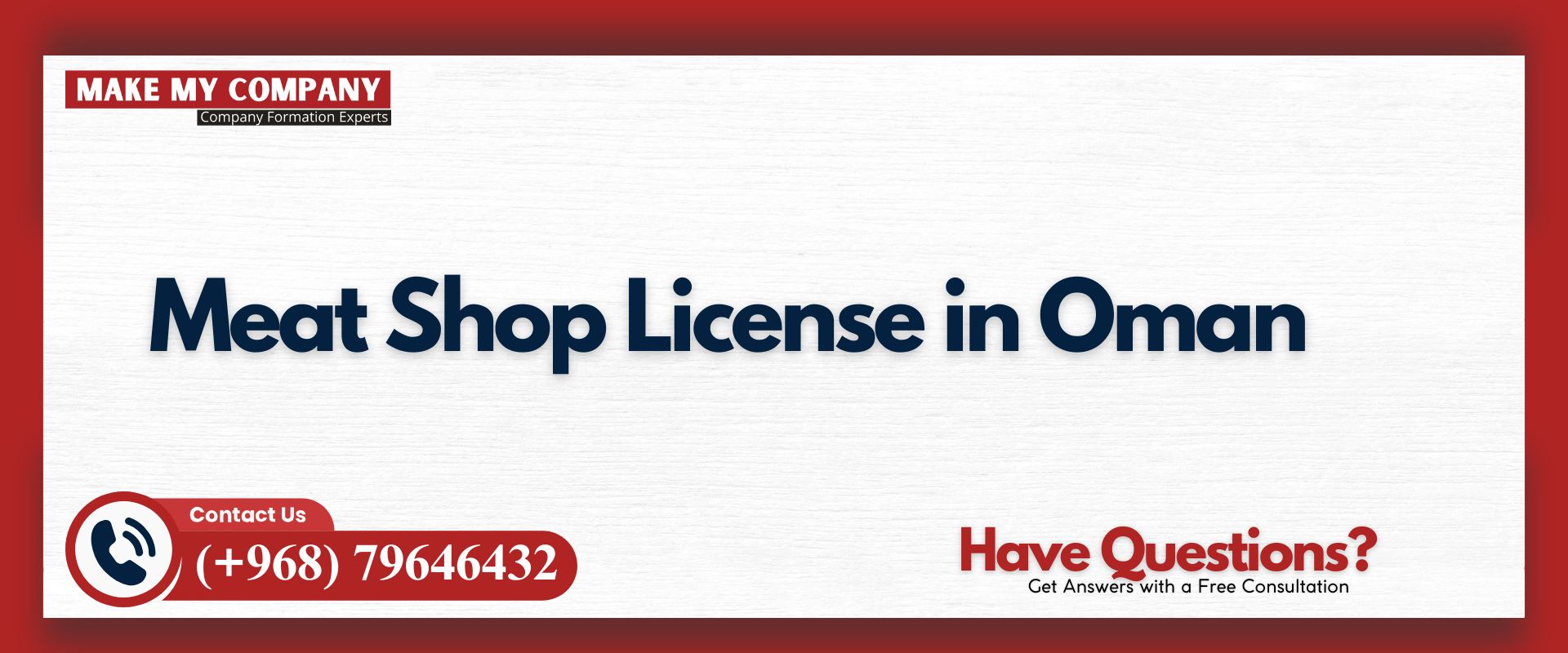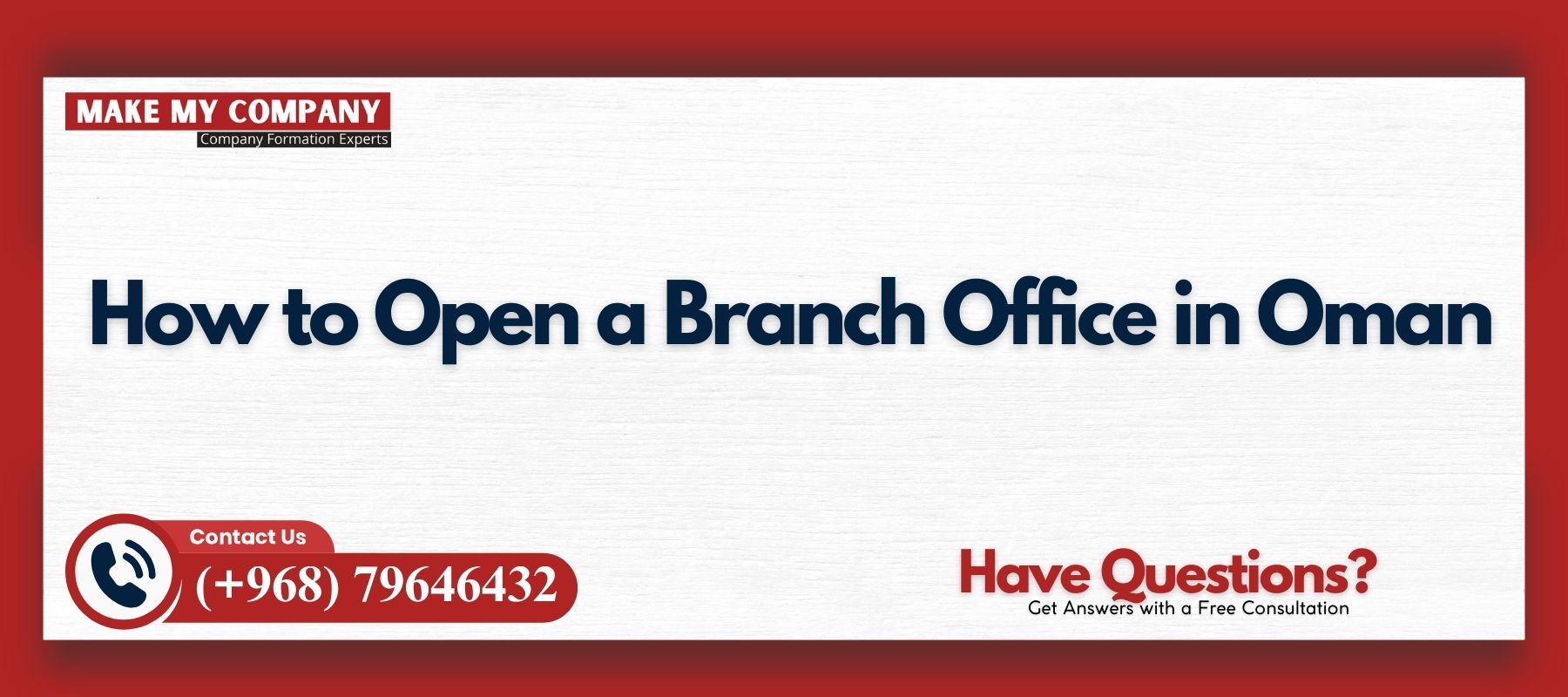The meat retail industry in Oman presents lucrative opportunities for entrepreneurs seeking to enter the food business sector. With growing consumer demand for quality meat products, diverse protein preferences, and government emphasis on food safety standards, establishing a butcher shop or meat retail business requires proper licensing and regulatory compliance. Whether you plan to operate a traditional butchery, modern meat supermarket, or specialized halal meat shop, understanding the licensing process is crucial for success. This comprehensive guide explains everything you need to know about obtaining a meat shop license in Oman, from regulatory requirements to operational standards, ensuring your business launches legally and sustainably.
Table of Contents
Overview of Meat Market in Oman
Understanding the meat industry landscape helps entrepreneurs identify opportunities and position their businesses strategically within Oman’s growing food retail sector.
Market Dynamics and Consumer Demand
Oman’s meat consumption has increased steadily with population growth, rising disposable incomes, and dietary preferences emphasizing protein-rich foods. The market encompasses diverse protein categories including halal beef, lamb and mutton, poultry (chicken, turkey), seafood and fish, and processed meats (sausages, cold cuts). Consumer preferences lean toward fresh, high-quality products with visible sourcing, proper hygiene standards, competitive pricing, and convenient locations.
Types of Meat Retail Businesses
The sector accommodates various business models including traditional butcher shops offering fresh cuts and custom preparation, modern meat supermarkets with refrigerated displays and packaged products, halal meat stores specializing in certified halal products, specialty meat shops focusing on premium or organic meats, and wholesale meat suppliers serving restaurants and food service businesses. Each model requires specific licensing, facilities, and operational approaches.
Growth Drivers and Opportunities
Several factors fuel meat retail growth including expanding expatriate population demanding diverse meat varieties, tourism sector growth increasing food service demand, government food security initiatives promoting local meat production, rising health consciousness driving demand for quality proteins, and Vision 2040 economic diversification supporting private sector food businesses. These trends create favorable conditions for well-managed meat shops meeting consumer expectations.
Regulatory Environment
Oman maintains strict food safety regulations governing meat handling, storage, and retail. The government prioritizes consumer protection, public health safeguards, and industry standards enforcement. Prospective meat shop owners must navigate regulations from multiple authorities ensuring comprehensive compliance throughout establishment and operations.
Understanding Meat Shop License Requirements in Oman
Establishing a meat retail business requires obtaining several licenses and approvals from different government authorities.
Commercial Registration with MOCIIP
Begin by registering your business with the Ministry of Commerce, Industry and Investment Promotion (MOCIIP). Choose an appropriate business structure typically Limited Liability Company (LLC) for partnerships or Single Person Company (SPC) for individual ownership. Your Commercial Registration (CR) certificate specifies meat retail, butchery, or food products trading as primary business activities. This foundational document enables subsequent licensing applications.
Municipality Business License
Your local municipality issues the primary business license for meat shops after verifying premises compliance with zoning regulations, building codes, sanitation requirements, and operational standards. Municipality licenses are specific to your shop location and require annual renewal. Different municipalities (Muscat, Salalah, Sohar) may have varying requirements, though core standards remain consistent nationwide.
Food Safety License
The Ministry of Agriculture, Fisheries and Water Resources (MAFWR) oversees food safety standards and meat quality control. Obtain food safety certification demonstrating your understanding of proper meat handling, storage temperatures, hygiene protocols, and contamination prevention. This certification validates your capability to maintain food safety throughout supply chain and retail operations.
Health Department Approval
The Ministry of Health requires health clearances for food retail establishments ensuring public health protection. Inspectors examine facility hygiene, employee health certificates, sanitation facilities, waste disposal systems, and disease prevention measures. Health department approval confirms your shop meets medical and sanitary standards protecting consumers from foodborne illnesses.
Halal Certification (If Applicable)
If marketing products as halal meat, obtain certification from authorized Islamic certification bodies verifying slaughter methods, handling procedures, and supply chain compliance with Islamic dietary laws. While Oman’s meat supply is predominantly halal, explicit certification differentiates your business and builds consumer trust, particularly among religious communities and export markets.
Food Safety License and Health Regulations in Oman
Food safety and health compliance form the cornerstone of meat retail regulation in Oman, protecting consumers and ensuring industry standards.
Temperature Control Requirements
Meat products require strict temperature control throughout storage and display. Refrigeration systems must maintain temperatures below 4°C (39°F) for fresh meats and below -18°C (0°F) for frozen products. Install commercial-grade refrigerators and freezers with digital temperature monitors, backup power systems, and alarm mechanisms alerting staff to temperature fluctuations. Regular temperature logging demonstrates compliance during inspections.
Hygiene and Sanitation Standards
Food hygiene regulations mandate comprehensive sanitation protocols including daily cleaning of cutting surfaces, equipment, and display areas, sanitizing knives, utensils, and processing tools between uses, proper handwashing facilities for employees, separate areas for different meat types preventing cross-contamination, and pest control measures with regular professional treatments. Maintain detailed cleaning logs documenting sanitation activities.
Employee Health Requirements
All staff handling meat must obtain health certificates from approved medical facilities proving freedom from communicable diseases. Employees undergo regular health screenings (typically annually) and complete food handler training covering hygiene practices, contamination prevention, proper food storage, and customer service standards. Staff must wear clean uniforms, hairnets, disposable gloves, and follow strict personal hygiene protocols.
Waste Management and Disposal
Meat waste disposal requires special attention due to health and environmental risks. Implement proper waste segregation separating meat waste from general refuse, refrigerated waste storage preventing decomposition, contracted waste collection with licensed disposal companies, and compliance with Environment Authority regulations. Improper waste handling results in health violations and license suspension.
Traceability and Sourcing Documentation
Authorities require documentation proving meat sourcing from licensed suppliers, slaughterhouses, or importers. Maintain records of supplier licenses, batch numbers, delivery dates, and product origins. This traceability system enables rapid response during food safety incidents and demonstrates supply chain integrity.
Step by Step Process To Obtain a Meat Shop License in Oman
Follow this systematic approach to secure all necessary licenses and approvals for your meat retail business.
Step 1: Develop Business Plan and Concept
Create a comprehensive business plan defining your target market (residential communities, restaurants, hotels), product range (beef, lamb, poultry, seafood), pricing strategy, competitive positioning, and financial projections. Decide whether you’ll operate a traditional butchery, modern self-service meat market, or specialized organic/premium meat shop. Your concept shapes facility requirements, licensing needs, and operational strategies.
Step 2: Secure Suitable Premises
Identify commercial premises meeting meat shop requirements including adequate space for processing, storage, and retail areas (minimum 50-100 square meters), proper zoning designation for food retail, reliable utility connections (electricity, water, sewage), adequate ventilation and air conditioning, and accessibility for suppliers and customers. Ensure the location complies with municipality zoning regulations before committing to lease agreements.
Step 3: Register Your Business with MOCIIP
Complete company registration through the Invest Easy portal, reserving your business name, preparing Memorandum and Articles of Association in Arabic, and submitting documentation with shareholder details. Upon approval, receive your Commercial Registration certificate specifying meat retail as your business activity. This CR becomes the foundation for all subsequent licenses.
Step 4: Design and Prepare Facility
Engage professionals to design your shop meeting regulatory standards. Install commercial refrigeration systems with temperature monitoring, stainless steel cutting surfaces and equipment, proper drainage and waste disposal systems, adequate lighting (minimum 500 lux in work areas), handwashing stations with hot water, separate customer and processing areas, and appropriate flooring (non-slip, easy-to-clean tiles). Facility design must pass municipality and health inspections.
Step 5: Obtain Municipality Approval
Submit detailed facility plans, equipment specifications, waste management procedures, and operational protocols to your local municipality. Municipality inspectors conduct pre-opening inspections verifying building compliance, sanitation facilities, safety systems, and zoning adherence. Address any deficiencies identified during inspections before receiving municipality business license approval.
Step 6: Secure Health Department Clearance
Apply for health clearance from the Ministry of Health presenting facility documentation, employee health certificates, sanitation protocols, and food safety procedures. Health inspectors examine your premises, verify hygiene standards, check employee facilities, and assess contamination prevention measures. Demonstrate compliance with all health regulations to receive approval.
Step 7: Obtain Food Safety Certification
Complete food safety training for yourself and key staff through programs approved by MAFWR or recognized food safety organizations. Submit certification applications demonstrating knowledge of HACCP (Hazard Analysis Critical Control Points), proper meat handling procedures, temperature control protocols, and hygiene standards. Receive food safety certificates validating your technical competence.
Step 8: Register with OCCI and Tax Authority
Join the Oman Chamber of Commerce and Industry (OCCI) for business legitimacy and networking opportunities. Complete tax registration with the Oman Tax Authority (OTA) obtaining your Tax Identification Number. Register for VAT if your annual turnover is expected to exceed OMR 38,500. These registrations enable legal invoicing and tax compliance.
Step 9: Establish Supplier Relationships
Contract with licensed meat suppliers, slaughterhouses, or importers ensuring reliable product sourcing. Verify suppliers hold valid licenses and comply with food safety standards. Negotiate pricing, delivery schedules, payment terms, and quality guarantees. Maintain documented supplier relationships demonstrating proper sourcing for regulatory compliance.
Step 10: Hire and Train Staff
Recruit qualified butchers with meat cutting expertise, sales staff for customer service, cleaning personnel for sanitation, and delivery drivers if offering home delivery. Ensure all employees obtain health certificates and complete food handler training. Implement ongoing staff training on hygiene protocols, customer service, and safety procedures.
Step 11: Conduct Pre-Opening Inspections
Before commencing operations, request final inspections from municipality authorities, health department, and food safety inspectors. Demonstrate all systems function properly, staff are trained, and operational protocols are implemented. Address any last-minute concerns ensuring complete compliance before opening to customers.
Step 12: Launch Operations and Maintain Compliance
Upon receiving all licenses and approvals, commence business operations maintaining strict compliance with regulations. Implement continuous hygiene monitoring, regular equipment maintenance, staff training updates, and documentation of all operational activities. Prepare for periodic inspections by maintaining high standards and comprehensive records.
Document Required To Obtain a Meat Shop License in Oman
Comprehensive documentation ensures smooth approval across all regulatory authorities.
Company Formation Documents:
- Commercial Registration certificate from MOCIIP
- Notarized Memorandum and Articles of Association
- OCCI membership certificate
- Tax registration certificate from OTA
- Valid passports and residence visas of shareholders
- Civil ID cards (for Omani nationals)
Premises and Facility Documents:
- Property lease agreement or ownership deed
- Municipality zoning approval for food retail
- Detailed facility floor plans and layouts
- Equipment specifications and installation certificates
- Refrigeration system capacity and temperature control documentation
- Ventilation and air conditioning specifications
- Water supply and drainage system plans
- Waste disposal agreements with licensed contractors
Health and Safety Documentation:
- Employee health certificates from approved medical centers
- Food handler training certificates for all staff
- Food safety management plan (HACCP documentation)
- Hygiene and sanitation protocols
- Pest control service contracts and treatment schedules
- Cleaning and maintenance schedules
- Emergency response procedures
Operational Procedures:
- Meat sourcing and supplier documentation
- Supply chain traceability systems
- Temperature monitoring and logging procedures
- Cross-contamination prevention protocols
- Product labeling and information systems
- Customer complaint handling procedures
- Quality control measures
Insurance and Risk Management:
- General liability insurance policy
- Product liability insurance
- Property insurance for equipment and inventory
- Workers’ compensation insurance (if applicable)
Professional Certifications:
- Halal certification (if marketing halal products)
- Organic certification (if selling organic meats)
- Any specialized product certifications
How Much Does It Cost To Obtain a Meat Shop License in Oman
Understanding comprehensive costs helps secure adequate financing and prevents undercapitalization.
Government Licensing Fees:
- Commercial Registration with MOCIIP: OMR 150-300
- OCCI membership: OMR 150-300
- Municipality business license: OMR 200-500 (varies by location)
- Health department approval: OMR 100-300
- Food safety certification: OMR 200-400
- Annual license renewals: OMR 300-600
- Total government fees: OMR 1,100-2,400
Facility Setup Costs:
- Premises rental deposit (3-6 months): OMR 2,000-6,000
- Monthly rent (50-100 sqm shop): OMR 700-2,000
- Commercial refrigeration systems: OMR 5,000-15,000
- Display cases and storage freezers: OMR 3,000-8,000
- Cutting equipment and tools: OMR 1,500-4,000
- Stainless steel tables and surfaces: OMR 1,000-3,000
- Flooring, tiling, and drainage: OMR 2,000-5,000
- Ventilation and air conditioning: OMR 2,000-6,000
- Signage and branding: OMR 500-2,000
- Total facility costs: OMR 17,700-51,000
Operational Setup:
- Initial meat inventory: OMR 3,000-8,000
- Packaging materials and supplies: OMR 500-1,500
- Cleaning equipment and supplies: OMR 300-800
- Uniforms and protective gear: OMR 300-800
- Point-of-sale system: OMR 800-2,000
- Total operational costs: OMR 4,900-13,100
Professional Services:
- Legal and documentation services: OMR 500-1,500
- Facility design and consultation: OMR 1,000-3,000
- Food safety training programs: OMR 300-800
- Business Setup in Oman consultancy: OMR 1,000-3,000
- Total professional services: OMR 2,800-8,300
Insurance (Annual):
- General liability insurance: OMR 500-1,500
- Product liability coverage: OMR 800-2,000
- Property insurance: OMR 400-1,000
- Total insurance: OMR 1,700-4,500
Staffing Costs (First 3 Months):
- Butcher salaries (1-2 staff): OMR 1,800-4,500
- Sales staff: OMR 1,200-3,000
- Cleaning staff: OMR 600-1,500
- Total initial payroll: OMR 3,600-9,000
Total Investment Estimate: For a small to medium meat shop, expect total startup investment of OMR 31,800-88,300 covering all licensing, facility setup, equipment, inventory, and initial operations. Larger operations or premium locations require higher investments ranging OMR 100,000-200,000.
Benefits To Obtain a Meat Shop License in Oman
Beyond legal compliance, proper licensing provides strategic advantages supporting business success.
Legal Protection and Operational Authorization
A valid meat shop license provides complete legal protection to operate your business without risk of fines, closure, or legal prosecution. Licensed status authorizes purchasing meat from approved suppliers, selling products to consumers, hiring employees legally, and entering commercial contracts with restaurants or institutions. Operating without licenses results in immediate closure and substantial penalties.
Consumer Trust and Market Credibility
Licensed meat shops demonstrate commitment to food safety, quality standards, and regulatory compliance. Consumers increasingly verify business licenses before purchasing food products, particularly perishables like meat. Your licensing validates product safety, proper handling procedures, and accountability, building customer confidence and loyalty essential for repeat business.
Access to Quality Suppliers
Licensed meat retailers can source products from reputable slaughterhouses, importers, and distributors who require license verification before establishing supply relationships. Quality suppliers prefer working with compliant businesses, ensuring you receive fresh, properly handled products. Unlicensed operations resort to questionable suppliers compromising product quality and safety.
Expansion and Growth Opportunities
Licensed businesses can open multiple branches across Oman, participate in government food supply contracts, apply for business loans and financing, and explore partnerships with supermarkets or food service providers. These growth mechanisms remain unavailable to unlicensed operations, limiting business potential.
Insurance and Risk Management
Proper licensing enables obtaining comprehensive insurance including product liability coverage, business interruption insurance, and property insurance. Insurance providers require valid licenses before issuing policies, and coverage protects against financial losses from accidents, contamination incidents, or natural disasters.
Competitive Advantage
In markets with both licensed and unlicensed vendors, licensed meat shops command premium pricing, attract quality-conscious customers, build stronger brand reputation, and achieve higher customer retention. Compliance becomes a differentiator in competitive markets.
How Make My Company Helps You To Obtain a Meat Shop License in Oman
Navigating the complex licensing process for meat retail businesses involves coordinating multiple government authorities, ensuring facility compliance, and maintaining detailed documentation. Professional guidance significantly accelerates establishment and prevents costly mistakes.
Make My Company specializes in comprehensive food business licensing with deep expertise in MOCIIP registration, municipality approvals, health department compliance, and MAFWR certifications. Our experienced consultants understand the unique requirements for meat shops including facility design standards, hygiene protocols, and supplier verification.
We provide end-to-end support including business structure consultation and optimization, company registration with MOCIIP, premises evaluation and suitability assessment, facility design guidance ensuring regulatory compliance, municipality license application and coordination, health department approval facilitation, food safety training arrangement, supplier identification and verification, OCCI membership processing, tax registration with OTA, insurance arrangement assistance, and ongoing compliance management support.
Our team maintains strong relationships with municipality officials, health inspectors, and food safety authorities, ensuring efficient processing of your applications and approvals. We coordinate inspection schedules, address regulator concerns, and ensure your facility meets all standards before opening.
Contact us today to discuss your meat shop business vision. We’ll assess your specific requirements, recommend optimal locations, guide facility preparation, handle all licensing applications, and position your business for successful launch. With Make My Company’s professional support, you can compress establishment timelines, ensure complete regulatory compliance, and focus on product sourcing, staff training, and customer acquisition strategies essential for profitable operations in Oman’s competitive meat retail market.









